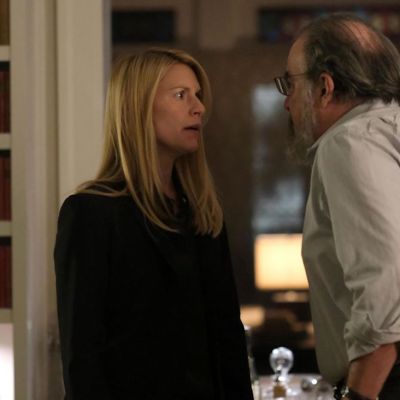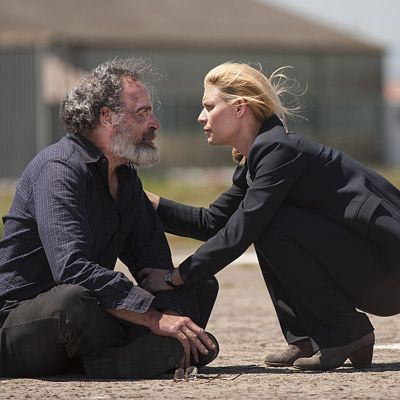Homeland Seasons Ranked Best to Worst
It's so hard to say goodbye. So with Homeland's reign finally over, we look back on the show's best and worst seasons.
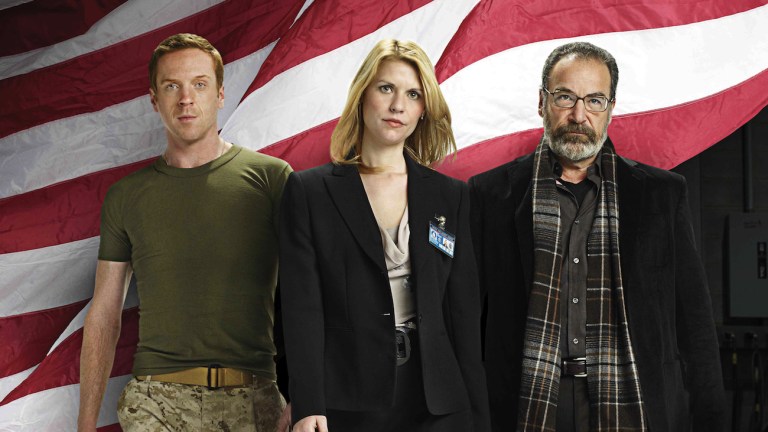
The world has changed a lot since Homeland first premiered on Showtime in October 2011. Debuting during the third year of Barack Obama’s presidency, and just five months after Osama bin Laden’s death, it appeared during a moment of reflection in the U.S. on the previous decade’s War on Terror, and the then urgent desire to move on. Now almost 10 years later, the world really has seemingly turned the page on that chapter in history with social distancing being the order of the day, and the American citizenry facing a crisis arguably greater than any since World War II.
Perhaps for that reason it’s apt for us to say goodbye to Carrie Mathison, Saul Berenson, and the ghosts they carry with them. Still, it’s a hard thing to do considering that as the world transformed in ways big and small with each passing season, Homeland kept pace and at times even predicted our next dream or nightmare. All the while we kept, often breathlessly, chasing after Carrie’s journey and the sometimes frustrating detours it could take. So as things come to a close, it’s time to look back at the best and worst of Homeland. Grab your jazz records, maybe pour a tall glass of wine, and sit back as we revisit the show’s highest highs and lowest lows.
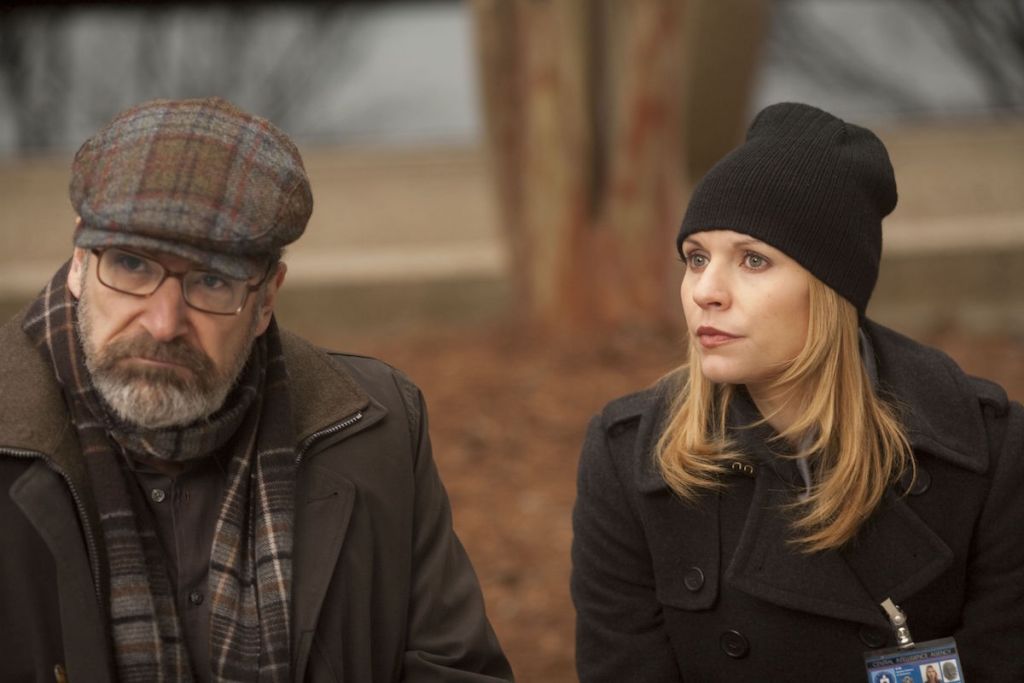
1. Homeland Season 1 (2011)
The first season remains Homeland’s best year. While there were other excellent vintages, not only did Alex Gansa and Howard Gordon’s first pass at adapting the Israeli television series Prisoners of War prove captivating, it was arguably perfect. With 12 slow boiling hours of tension, one could be forgiven for treating Homeland’s maiden season as a standalone miniseries. It would still be wholly satisfying, even with the bitterest of bitter finales.
Coming into television viewers’ homes shrouded in a cloud of paranoia and dread, Carrie Mathison’s introduction felt like a bold rebuke of Gansa and Gordon’s previous spy show during the Bush years, 24. Whereas Jack Bauer was a superhero with high-level security clearance, Claire Danes’ Carrie was painfully human and graced with a sense of perspective—of the world if not her place in it. Beautifully essayed by Danes as a bundle of exposed nerves always threatening to be scratched—be it by neuroses or a sometimes crippling sense of self-righteousness—Carrie is a CIA analyst who knows that the story of war hero Nicholas Brody, resurrected back from the dead after being freed from seven years of al-Qaeda imprisonment in Iraq, is too good to be true. Carrie is convinced Brody has been brainwashed and she’s going to prove it to her superiors, to the viewers, and maybe to herself.
It’s a gripping premise that is delicately explored with all the ambiguity viewers felt at that time about America’s legacy of still lengthening MidEast misadventure. Rather than running into a situation with a gun and bag of torture goodies to save the day, Carrie watches Brody attempt to rebuild his family and family home, just as we watch her, thereby creating as nesting doll of voyeuristic intent. We were implicitly judging our protagonist as she judged her potential enemy, who everyone, including Carrie, wanted to believe was really innocent. That is in no small part thanks to the anxiety-laden empathy Damian Lewis brings to the part of Brody in a performance so good it would appear the show expanded Brody’s role from two seasons to being a dual protagonist for three years.
This developing bad romance between predator and prey (and the question mark of which is which) had a mixed effect on Homeland’s overall legacy, but in the first season, it builds to one of the most suspenseful hours in television history when Brody walks into a bunker with a suicide bomb vest underneath his uniform, and Carrie, disgraced and ruined by the family man we initially sympathized with, further destroys her sanity in order to prevent him from pushing a button. There’s a reason this season won all the Emmys and Golden Globes.
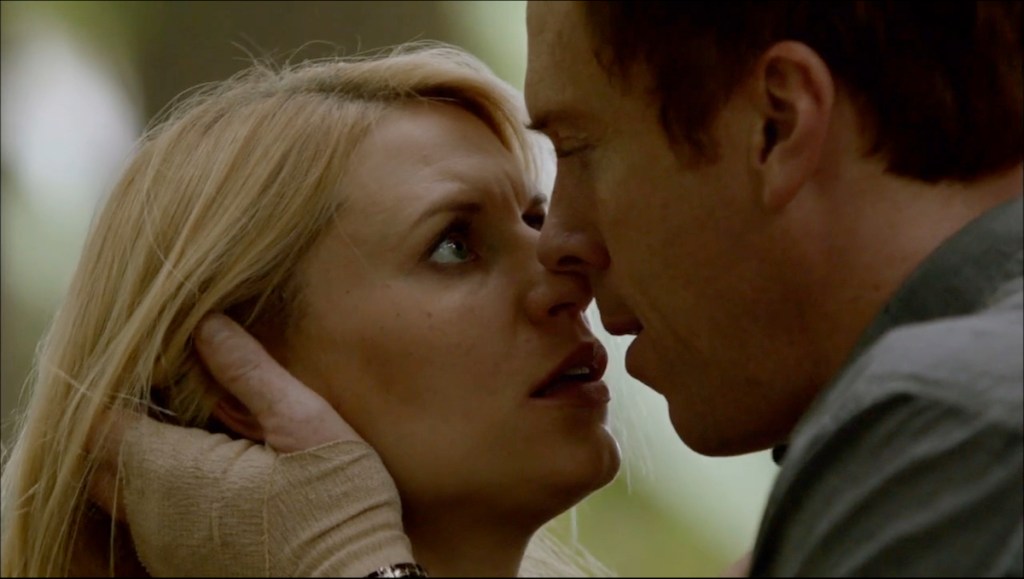
2. Homeland Season 2 (2012)
At the beginning season 1, Homeland was the new mysterious stranger on Showtime that everyone was beginning to talk about. At the top of season 2, it was the most popular show on TV, at least as far as awards voters and the Washington beltway were concerned. President Barack Obama and Secretary of State Hillary Clinton both were soliciting early screeners for the next season, and all eyes were on how Showtime would allow Carrie to strike back at the American traitor who under a guise of concern, both real and manufactured, had convinced her she was crazy and needed to endure electroshock therapy.
Luckily season 2 delivered. If season 1 was about turning the screws of anxiety in viewers until they might confess anything to spare Carrie from more suffering, in season 2, she and Mandy Patinkin’s Saul Berenson finally turned the tables on Brody. Patinkin was as invaluable to the first season as Danes and Lewis, but the second season allowed his paternal relationship with Carrie to be cemented as the most important in the series as he laid the groundwork for Carrie’s miraculous return to the agency, and this in turn brought her face-to-face with Brody once more.
“Q&A,” an episode smack in the middle of season 2, proved every bit as thrilling as the season 1 finale, only now instead of fearing for Brody’s psychology and soul, we’re asked to savor Carrie breaking both in an interrogation that changed the course of the series and further linked the two characters’ fates. Again, it’s hard to imagine television getting much better than this, and Homeland Season 2 continued to provide catharsis after the first season’s horror. But that might be what kept it from being quite so perfect.
While season 2 wrapped up most of the dangling threads from Homeland’s first season, from a pernicious vice president’s assassination to the fate of Abu Nazir being revealed, the finale refused to bring an ending to Brody’s narrative. This set-up major problems for Homeland’s third season that took years for the showrunners to overcome. Nevertheless, in 2012 this was still arguably the best show on television.
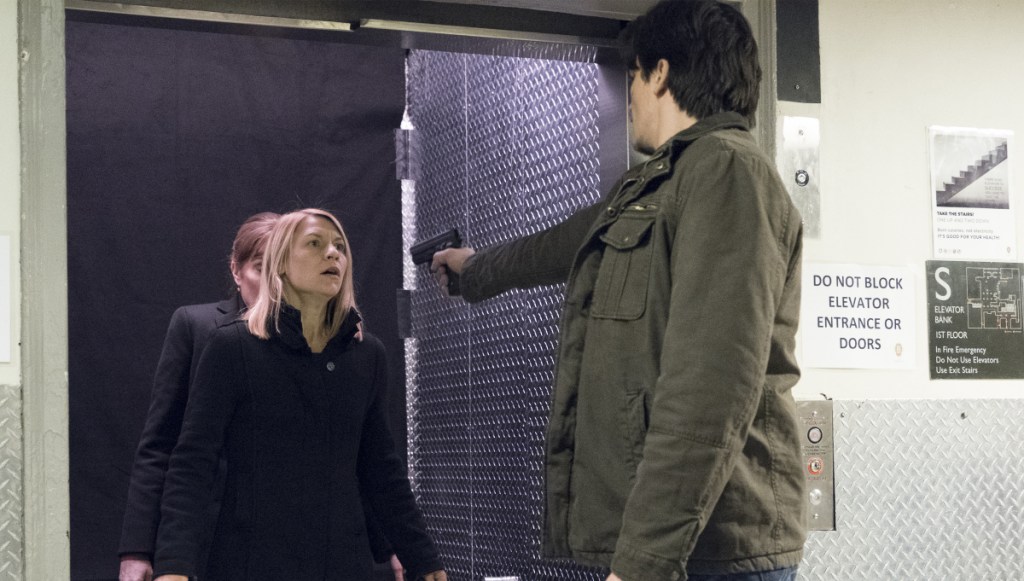
3. Homeland Season 6 (2017)
From the outside, the beginning of Homeland’s sixth season appeared to be the first time the series had severely fallen out of step with the headlines. Debuting in the gloomy January following the 2016 presidential election, the introduction of President-Elect Elizabeth Keane (played by a terrific Elizabeth Marvel) suggested the show wildly misjudged the previous election and, like many others, assumed Hillary Clinton was about to be sworn in.
How wrong we were. Instead of being the season that confirmed Homeland had completely lost its touch, season 6 rather uncomfortably predicted much of the political drama that was to come, as well as signaled the Showtime series’ unexpected renaissance.
While Keane might’ve been loosely based on Clinton in a few details, both her ascension and the negative reaction it conjured throughout the country was eerily prescient of the Trump era to come. First, the CIA’s disapproving reaction to a new POTUS who is hostile to our intelligence agencies plays into every far-right conspiracy theorist’s “Deep State” nightmare, albeit with F. Murray Abraham’s Dar Adal revealing his true colors by conspiring to assassinate a dove president as opposed to trying to undermine a reality TV blowhard making excuses for Russian interference in our election.
Yet, more confusingly still, Keane is a victim of election and post-election interference. Written before November 2016 turned out to at least partially pivot on the insidious influence of far-right social media being manipulated by computer banks of bots and Russian sponsored “trolls,” Homeland Season 6 based its premise on just such a scenario, albeit with the nefarious government manipulations being our own “Deep State.”
Real world echoes aside, this was the season that remembered Carrie wasn’t most heroic when she was running around with a gun; it’s when she’s a woman trying to do the right thing in impossible circumstances. Living in Brooklyn with her daughter, Carrie seems to have found peace and finally accepted the need for Peter Quinn (Rupert Friend) in her life, but only after he’s suffered life-altering injuries. Now as a political consultant and advocate, Carrie and Homeland unpack some of their past sins of generalization toward Muslim culture with the introduction of Sekou Bah (J. Mallory McCree), an arguable radical with an anti-American government YouTube channel, which is then manipulated by nefarious elements of said government into being a scapegoat and boogeyman.
It was a transitional season where Homeland finally began thinking about its own legacy, all while further enriching it with a latter day return to form. And little else can displace the tragedy of Peter Quinn’s life and its heartbreaking end in this season’s finale.
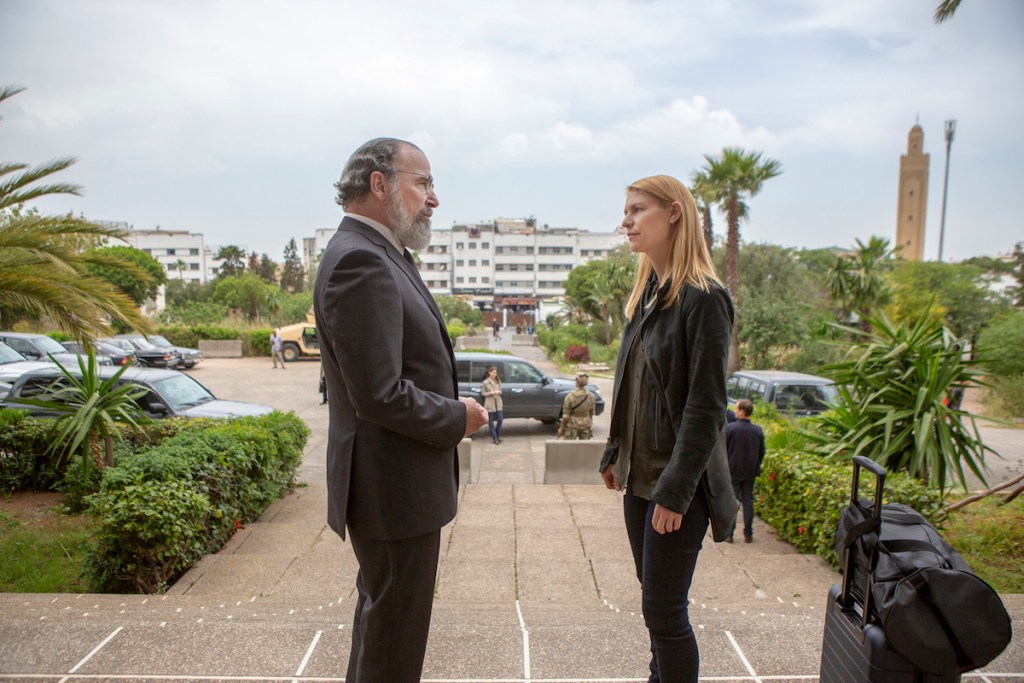
4. Homeland Season 8 (2020)
The final season of Homeland turned out to be one of its best. By returning to the Middle East, it settled plot threads left dangling in season 4 and, more importantly, confronted the legacy of the War on Terror from which its entire worldview sprung. When the series began, Americans were attempting to move past the hard lessons of 9/11 and the Iraq War. Homeland’s final season, however, asks if we really learned anything from them while creating a phantom scenario of feckless leadership and a cloud of misinformation being used to drag us into another needless Middle East war.
It also forced Carrie and Saul to evaluate their own individual legacies within the spy games and patriotic good intentions they’ve pursued their whole lives. The season begins with a high degree of fan service wish fulfillment as Saul seemingly solves America’s longest war in Afghanistan and Carrie at last gets the recognition she deserves from a grateful White House. Yet it ends in the ambiguity and shadows that made the show’s early years so haunting. Carrie and Saul are dwarfed in the darkness cast by past mistakes and lost friends and family, be it the deceased Nick Brody and Peter Quinn, an estranged daughter in Franny or ex-wife in Mira, or just the faceless bodies left burning in misbegotten drone strikes.
Homeland ends by asking these characters, and the viewers who love them to do their own sober-eyed analysis of the past and present, in the hopes of finding a solution for a better future. However, it’s left up to you to have the imagination to build that scenario.
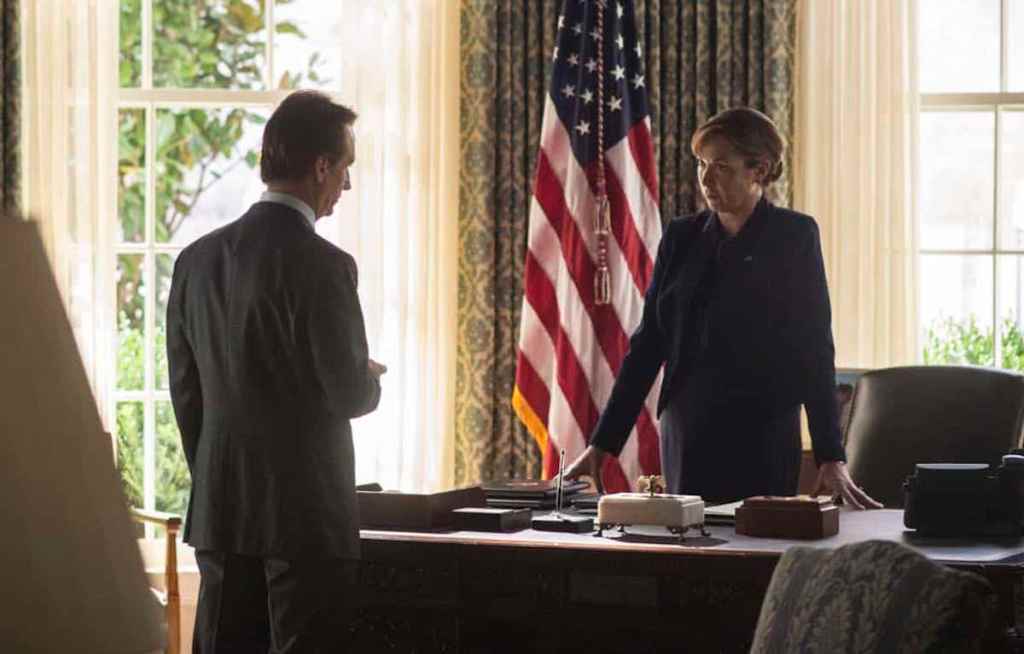
5. Homeland Season 7 (2018)
The Homeland renaissance continued in a penultimate season predicated on responding to and subverting mainstream media anxieties during the Trump era. When the season begins, Carrie has been frozen out of President Keane’s nascent administration, all while purging mass arrests throughout the government offered a vision of many columnists’ worst fears of a rogue presidency.
Yet while Homeland appeared to play both sides of the anxiety by revealing Keane to be relatively reasonable while facing the threat of far-right extremist violence as well as newly introduced Russian interference undermining our democracy, what made season 7 potent is how it examined what a happy ending for Carrie Mathison actually should be. Sure, Elizabeth Marvel, Jack Weber’s talk radio nut job, Brett O’Keefe, and Costa Ronin as Russian espionage mastermind Yevgeny Gromav provided a triumvirate of menacing antagonists, but the greatest threat to Carrie turned out playing out what most television viewers assumed was an appropriate “driving off into the sunset” ending.
After several seasons of declaring she was done with the CIA and wanting to settle down with her and Brody’s daughter, Franny, Carrie is now forced to choose between a domesticity she did not ask for and her nigh-fatal obsession with making sure “we don’t get hit again.” And she settles on the more unconventional answer. Yet it’s also the one that puts Carrie and Saul shoulder-to-shoulder again, thus it feels like the true endpoint of Carrie’s arc. Alas, this self-realization only lasts for a few episodes until a cliffhanger leaves her tortured and bedeviled by those blasted Russians.
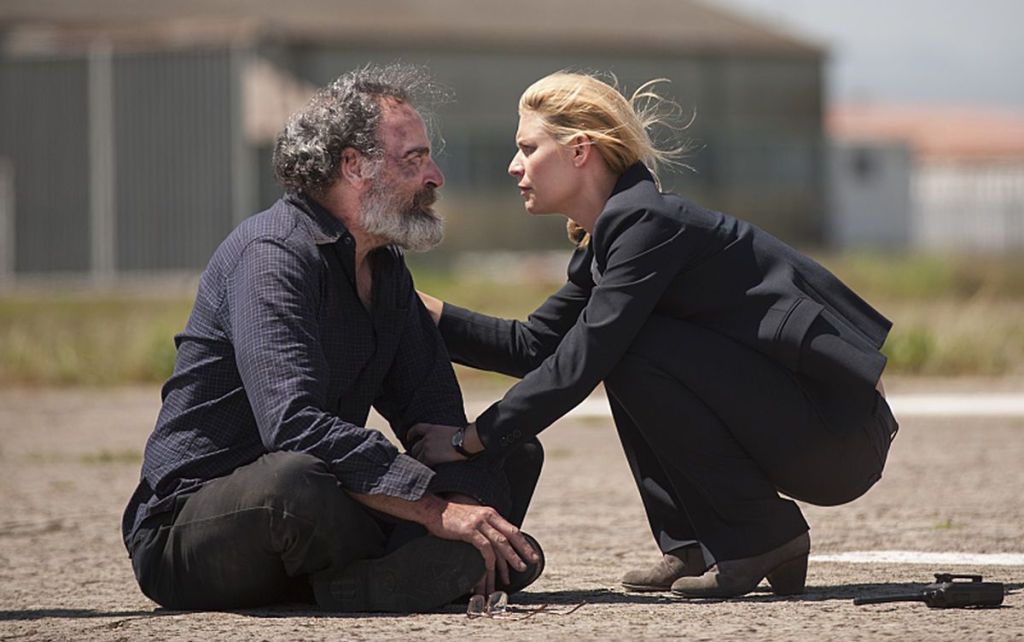
6. Homeland Season 4 (2014)
The fourth season of Homeland has its strengths and weaknesses. As the immediate season following the Nicholas Brody saga, this marked the first soft-reboot in the series—a feature that would become essential in almost all subsequent years. Its attempt to do so was a little scattershot at the time, but season 4 has aged well, particularly given how season 8 returned to its focal point of Pakistan.
Primarily set around the American embassy in Islamabad, Homeland Season 4 tried to unpack America’s complicated relationship with an ally that also probably withheld actionable intelligence about Osama bin Laden for years. It also rather crudely recreates the Benghazi raid in a different country that left fan favorite character Fara Sherazi (Nazanin Boniadi) dead. The similar heavy handedness of a subplot involving an American ambassador’s husband being a mole for Pakistani intelligence rings about as false as that thudding plot device’s repeated use in 24 (and the following season of Homeland that you can find below).
Yet this is the season where we see Carrie at her most competent and secure in the CIA. Becoming the “Drone Queen” of the Afghanistan station before investigating her own probable war crimes in Pakistan, we’re afforded the chance to witness Carrie held at her most unaccountable—and the havoc that can wreak. This also makes it the first season to truly challenge American foreign policy beyond “a few bad actors” like the vice president in the earlier seasons. Following the wake of actual drone bombings likely killing hundreds of civilians in the last decade, season 4 was determined to finally take a hard look in the mirror. That would become a recurring theme in Homeland’s later seasons. Couple this with a tense narrative involving Saul Berenson’s kidnapping, and season 4 has some painfully vital texture.
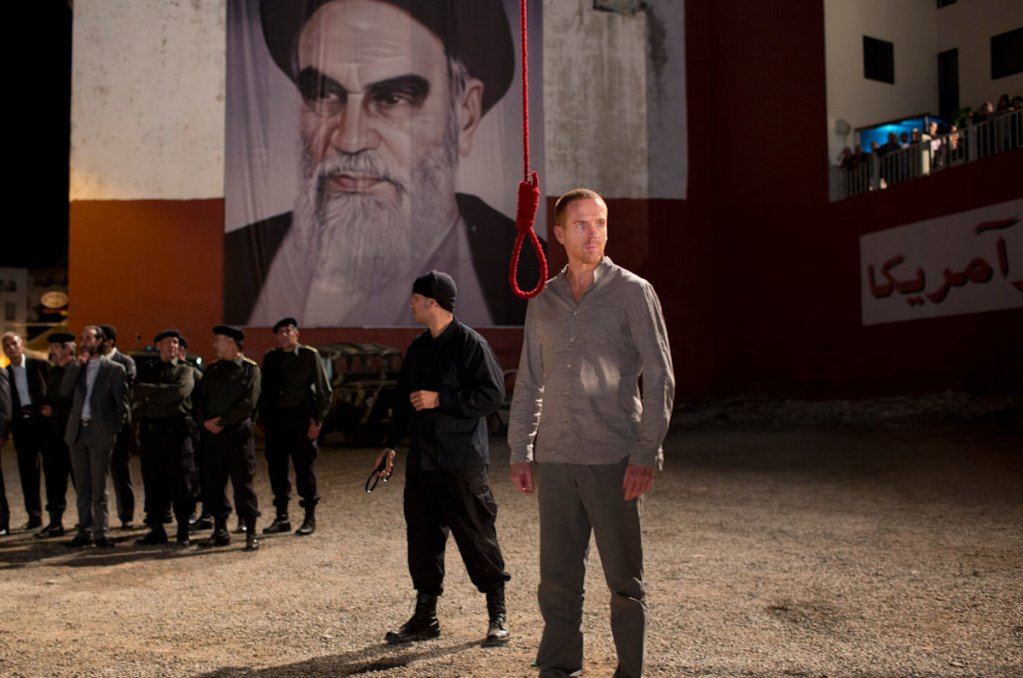
7. Homeland Season 3 (2013)
The season that brought tragic closure to Nicholas Brody’s life and narrative arc, it is the agony of Damian Lewis’ tortured anti-hero that makes this season marginally worth watching. While the introduction of Tracy Letts as a particularly snooty politician-turned-CIA Director is fun, and that the show managed to serendipitously tie its Iran-focused plot into the then shocking breakthrough in the Iran nuclear deal, this season is ultimately just spinning its wheels until the inevitable ending: Brody dies a traitor despised by everyone except Carrie Mathison.
It’s a hell of a scene when Carrie watches the man she loves, and the father of her child, be strung up and hanged in Tehran in an echo of 1979, but it’s not enough to make up for how boring much of the rest of this overly thin storytelling is… especially whenever it cut back to Dana or the horrible choice to have Carrie almost kill her daughter.
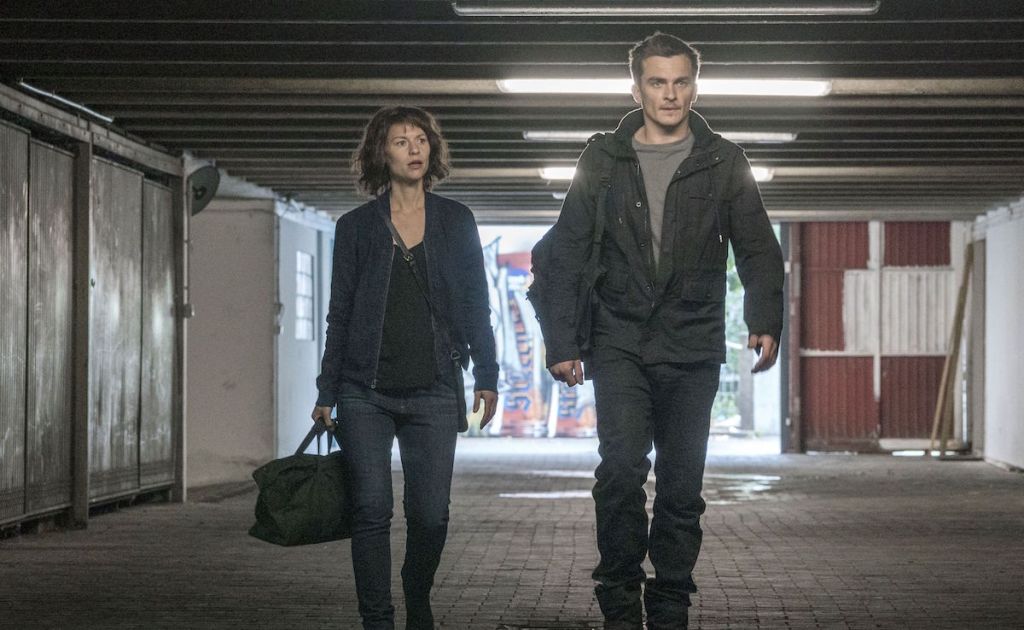
8. Homeland Season 5 (2015)
There is not a whole lot nice to say about the fifth season of Homeland. Despite Carrie Mathison drawing the seemingly natural conclusion to get out of the spy game in season 4, and working for a nonprofit this year, the season still ends with Carrie running down a subway tunnel with a gun like Jack Bauer in order to save Berlin from a citywide terrorist attack. It feels beneath the intelligence and verisimilitude of what came before season 5, and it rings inauthentic for Danes’ tragically human protagonist. Also introducing yet another mole, this one being Miranda Otto’s thankless role of Alison Carr, who then seduces Saul (instead of Brody’s mutual seducing of Carrie), was just downright lazy.
Looking back, Homeland definitely had its ups and downs, but the fact that it could rally from the nadir of season 5 to once again become one of the best shows on television speaks to the tenacity of Carrie Mathison and Saul Berenson… and while we’ll miss them.

